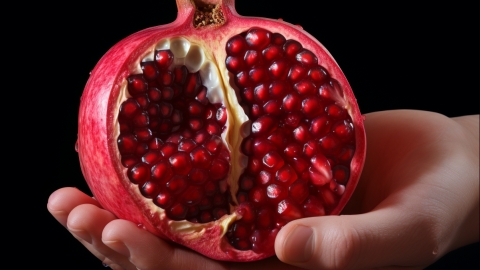Is it good to eat more pomegranates after test tube embryo transfer?
Generally, it is not advisable for women to consume excessive amounts of pomegranate after test tube embryo transfer. Detailed explanations are as follows:

Pomegranates contain organic acids, such as malic acid and citric acid, which can stimulate gastric acid secretion, enhance gastrointestinal motility, aid digestion, and improve loss of appetite. This may help relieve constipation, a common side effect caused by progesterone medications after in vitro fertilization (IVF) embryo transfer. Additionally, pomegranates contain vitamin K, which is important for bone health and may help prevent skeletal issues in both the mother and the fetus after embryo transfer. However, excessive consumption of pomegranate after IVF may lead to elevated blood sugar levels, which could negatively affect maternal health. Moreover, pomegranate is considered a relatively cold-natured food, and excessive intake might cause symptoms such as diarrhea, which could impact the mother's physical condition.
Pregnant women should maintain a balanced diet, focusing on light and easily digestible foods, while increasing intake of high-protein and high-fiber foods. They should avoid consuming blood-activating and stasis-resolving foods, overly hot-natured foods, or irritating foods. If any discomfort or concerns arise, medical advice should be sought promptly.





